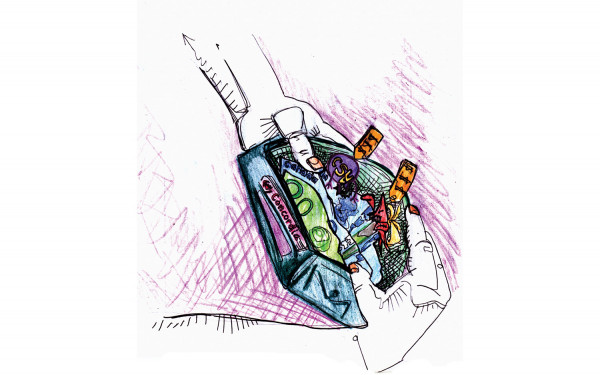Editorial: The Future Is Scary, So Let’s Get Ready
Conversations about the future are often dominated by talk of technological advancements and research: driverless cars, augmented reality, automation of jobs, medical innovation.
But that isn’t the full story about where the future is heading. For those of us who’ve spent their entire adult lives in the ongoing post-2008 recession world, our minds regularly drift into moods of skepticism and anxiety. Technological innovation matters less if the purchasing power of the majority of the population continues to shrink.
This doesn’t mean we can’t be excited or optimistic. On the contrary, we are strong at finding the silver lining in this glaringly atrocious and contradictory world. There should be no doubt in our minds that we can handle the gargantuan tasks of solving the climate crisis, the exploitation of labour to enrich a minority of insane billionaires, and the inappropriate distribution and ownership of resources, causing the displacement and suffering of millions of people across the globe.
It sounds weird, doesn’t it? How do you even begin to conceive of a solution to navigate the multi-verse labyrinth that is our generation’s challenge? If you have an answer, then let us know.
One thing is certain, we need to start by working closer to home. The experience we gain by solving these problems will give us the confidence for greater challenges ahead. For this magazine, we took a look in our own backyard, Concordia University and Montreal, to see how members of our communities are adapting, along with technological developments, to the rapidly-changing world in which we live.
In this issue, the Future Issue, we look at some of the sites where conflict is playing out between factions attempting to stake their claims into what the future will look like.
As Concordia strives to produce more research, the future of our institution—of our education—is up in the air. As a result, the question of how students fit into the equation remains unsolved. There are some ideas as to how that can work: incorporate community-based research into the classroom, and engage students in experiential learning that has a real impact. But beyond select projects, seeing a change like that on a large scale is still ways away.
Similarly, the nature of employment is changing. Permanent positions are becoming increasingly harder to come by, and a university degree can no longer guarantee a job. So in a world where “gig” work is the norm, despite being generally exploitative and unsustainable, labour organizing needs to change to accommodate those living such a reality—and some people are working towards that.
Even the way we eat, the way we entertain ourselves, and the way we train for athletic disciplines are changing. An increased desire for food security and the understanding of the effects of climate change in urban centres are encouraging more downtown residents to take food production into their own hands, choosing to harvest their own honey, for example, or house their own chickens. Increased availability of advanced tech, like virtual reality, allow artists to channel their creativity and reach their audiences in new ways. Hockey coaches are turning to video and technological aid to teach proper technique on the ice—although the fact that women’s teams are last to take advantage of the tech says that just because innovations are here, doesn’t mean we’re at a point of incorporating them equally and sustainably into our daily lives.
To fully understand these phenomena, we need a complete and accurate picture of our current situation. Looking at Lancaster Sound in Canada’s North allows us to envision what can become of the Arctic. And grasping what that future means for us, in Montreal, will mean coming to terms with how our actions affect both the climate and the culture of the North.
That’s what we’re hoping that this issue, the Future Issue, will allow us all to do. Let’s embrace what’s to come and prepare ourselves by learning, discussing, and getting involved.
The future might seem daunting, but, as we go over in this special issue, it remains unwritten. Many worlds are possible, and we hope that the words in these articles help you to begin building your own.


_600_832_s.png)




